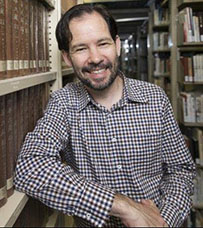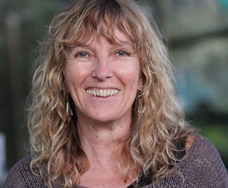UNE Asia Pacific Network (APN)
Since 1992 we have served as a hub for research, teaching and policy analysis that sheds light on social, political, cultural and economic change and transformation in Australia’s neighbourhood. Webring together experienced scholars, research students and practitioners to develop a deeper understanding of many aspects of this region. Our network members and researchers pursue cutting edge research and policy significant scholarship in five interrelated thematic areas:
- Peace, conflict, development and community resilience
- Social and political movements and discourses
- Environment, food security and social cohesion
- Crisis, security and humanitarian action
- Education, language, leadership and social change
Our aims
- Lead and facilitate collaborative research and outputs focusing on social, political, cultural and economic change and transformation in the Asia Pacific region.
- Facilitate policy research and dialogue on pressing issues affecting the lives and livelihoods of people in the Asia Pacific region.
- Offer space for building links and exchanging knowledge between academics and practitioners.
- Produce valuable knowledge and information that enhances socio-economic wellbeing of the people and empower rural and regional communities in Australia and the Asia Pacific region.
Workshop and Symposium Announcement

Music and Political Mobilisation in the Asia Pacific
Dates: August 22 and October 24, 2025
Locations: UNE Armidale and UNE Sydney Campuses
Join us for a two-part event exploring how music shapes and responds to political mobilisation across the Asia-Pacific region. For more information, visit: HERE
Network Convenors
Populism in Asia Pacific Populism is a growing phenomenon that is challenging the dynamics of all forms of government right around the world. Countries in the Asia Pacific region are not immune from this challenge as populist politics of different forms and styles have emerged rapidly in the last one decade or so. The “Populism in Asia Pacific” project employs comparative social and political perspectives to understand the anomalies of populisms and its effects on democracy in the Asia Pacific region. This project will result into journal articles and the Routledge Handbook of Populism. The handbook will, for the first time, bring thematic analysis and several country case studies together to identify the processes and patterns with which populist politics, leadership and mobilisations have manifested in the Asia Pacific region. Research team: Dr DB Subedi, Professor Alan Scott, Professor Howard Brasted, Dr Tony Lynch Cultural Hybridity and Resilience in the Goto Islands: An Oral History Project By examining the experiences of a minority community and heritage sites in liminal spaces in history and memory, through an interdisciplinary methodology and lens which draws on oral history, discussion of material objects and trauma studies, this project promotes a new postcolonial historiography. Although some communities have been studied by researchers from time to time in the region of the Goto Islands, Japan, comparative historic studies of Hidden Christian, Catholic and apostate communities have been neglected. This research will contribute to the ongoing retrieval of histories of marginalised and excluded groups and assist in understanding the interaction on the boundaries of Japan between varied people groups. Through this historical research, I aim to contribute to understanding the interaction on the boundaries of nations and states between varied people groups. By interviewing local people about their understanding of history and memory, the project promotes an indigenous and localised view. A UNE faculty grant (2022) has supported the project by the employment of a local research assistant, and Japan Foundation (2022) and the National Library of Australia (2022-2023) have contributed generous fellowships that will enable the research to progress. Additionally, Associate Professor Nishimura Akira of the University of Tokyo, has provided support within Japan, as well as the Sophia University Institute of Comparative Culture. Investigator: Dr Gwyn McClelland and Co-Investigator- Akira Nishimura from University of Tokyo) The Permaculture Institute – Myanmar (PIM) PIM was founded in 2019 as a collaborative project. It is the first permaculture Institute in Myanmar aiming to protect and conserve the environment, promote sustainable living and peace. Contact: Dr Johanna Garnett Iqthyer Uddin Md Zahed: The Politics of Forced Migration in the 21st Century: The Case of the Rohingya Sazzad H. Siddiqui: Post-liberal Hybrid Peace (building): Examining the role of peace infrastructure, positive peace and indigeneity in the post-accord Chittagong Hill Tracts of Bangladesh. Godwin Yidana: A Critical Analysis of Women’s Participation in the Myanmar Peace Process Prashneel Ravisan Goundar: Writing Skills for Undergraduate Students in Fiji: Tackling Educational Inequalities, Facilitating Epistemic Access. Kashif Hussain: The impact of violent extremism in Pakistan on public goods: health. education, security. Zahid Ahmed: Counter-terrorism in Pakistan: The Swat Valley as a Case Study. Iqthyer Uddin Md Zahed: The Politics of Forced Migration in the 21st Century: The Case of the Rohingya Sazzad H. Siddiqui: Post-liberal Hybrid Peace (building): Examining the role of peace infrastructure, positive peace and indigeneity in the post-accord Chittagong Hill Tracts of Bangladesh. Godwin Yidana: A Critical Analysis of Women’s Participation in the Myanmar Peace Process Prashneel Ravisan Goundar: Writing Skills for Undergraduate Students in Fiji: Tackling Educational Inequalities, Facilitating Epistemic Access. Kashif Hussain: The impact of violent extremism in Pakistan on public goods: health. education, security. Zahid Ahmed: Counter-terrorism in Pakistan: The Swat Valley as a Case Study. Nuclear Weapons after the ban: Remembering Nagasaki The international webinar, 'Nuclear Weapons after the ban: Remembering Nagasaki' co-hosted by Japanese, Peace Studies, Peace Boat Japan and the Asia Pacific Centre UNE, was a resounding success while being a sobering reminder of the need to eliminate nuclear weapons. There were 75 registrants from Japan, Australia, Indonesia, Afghanistan, UK, USA and China. Mr Tanaka, who spoke on the webinar from Japan, was exposed to the atomic bombing of Nagasaki, which took the lives of five of his family members. When the atomic bomb was dropped, he was upstairs in his house, 3.2 kilometres from the hypocenter. Mr Tanaka is one of the many Hibakusha who have dedicated large parts of their lives to anti-nuclear activism. The vivid memories of the catastrophic effects that the nuclear bombing had on his family and his community, have driven Tanaka's continued efforts to make sure no one would have to suffer through such an event again. At the webinar, Mr Tanaka frequently repeated that he felt he was not as heavily impacted as others and that is the reason he wishes to continue to tell his story. Participants asked excellent questions about why Nagasaki was not as well remembered as Hiroshima, how the survivors were cared for after the bombing and how Australian educational institutions could remember these events. One attendee, Professor Frank Hutchinson, summed up the event as follows: 'The webinar raised important issues about honest history-telling, war trauma, empathy, moral imagination, shared humanity, and working to create a better world for future generations free from nuclear weapons.' We hope to run a similar webinar during next year's conference to celebrate forty years of Peace Studies at UNE. If you would like to view the webinar and listen to Tanaka Terumi's testimonial, follow the link here. Tanaka Terumi Testimonial | Nuclear Weapons after the ban: Remembering Nagasaki webinar
We welcome academics and practitioners from the Asia Pacific region to join the centre as affiliated members and research associates. We also welcome short-term visiting fellows, who are working within the remit of the centre. The UNE-APC also offers Higher Degree Research supervision in a wide range of areas including Sociology, Peace Studies, Political and International Studies, Education, History, Archaeology, Philosophy, and Geography and Planning. Interested to join the UNE-APN? Contact Dr DB Subedi: dsubedi2@une.edu.auOur members



